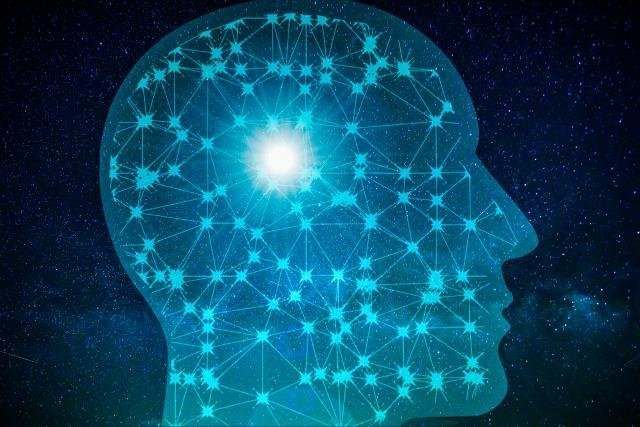Ethical Dilemmas in Tech: Balancing Innovation with Responsibility
Technology has always been a double-edged sword—driving human progress while also introducing significant ethical challenges. As innovation accelerates, tech companies and developers are constantly faced with ethical dilemmas that challenge the balance between groundbreaking advancements and responsible development. Whether it is artificial intelligence (AI), data privacy, automation, or biotechnology, ethical considerations must guide technological progress to ensure that innovation benefits society without causing harm.
The Dilemma of Artificial Intelligence
One of the most pressing ethical dilemmas in technology today revolves around AI. While AI-powered tools enhance efficiency, optimize decision-making, and revolutionize industries, they also raise concerns about bias, job displacement, and autonomy.
AI algorithms, trained on historical data, can perpetuate existing biases, leading to discrimination in areas such as hiring, lending, and law enforcement. For instance, facial recognition technology has been criticized for misidentifying individuals, particularly those from minority communities. This poses a significant ethical challenge: How can we create AI systems that are fair, transparent, and accountable?
Another critical issue is AI’s impact on employment. Automation threatens millions of jobs, particularly in sectors such as manufacturing, customer service, and transportation. While AI creates new job opportunities, the transition is not seamless, and many workers lack the skills needed for emerging roles. Ethical AI development should involve strategies for workforce reskilling and policies that prevent mass unemployment.
Data Privacy and Surveillance
With the rise of the internet, social media, and smart devices, vast amounts of personal data are collected every second. While data-driven technologies improve user experiences, they also pose significant ethical concerns regarding privacy, consent, and security.
Tech giants such as Facebook, Google, and Amazon collect user data to personalize content and target advertisements. However, these practices raise concerns about whether users truly understand how their data is used. The 2018 Cambridge Analytica scandal highlighted how personal data could be exploited for political manipulation, sparking global debates on digital privacy.
Government surveillance adds another layer to this ethical dilemma. While surveillance technologies help prevent crime and enhance national security, they can also be misused for mass surveillance and infringe on civil liberties. The challenge is to strike a balance between security and privacy, ensuring that data collection is transparent and regulated.
Ethical Challenges in Biotechnology
Biotechnology and genetic engineering hold the promise of curing diseases, extending human lifespan, and improving agricultural productivity. However, they also pose ethical dilemmas related to human intervention in nature.
CRISPR, a revolutionary gene-editing technology, enables scientists to modify DNA with unprecedented precision. While this technology has the potential to eliminate genetic disorders, it also raises ethical concerns about designer babies, genetic discrimination, and unintended consequences. If left unchecked, genetic modifications could lead to a future where only the wealthy can afford enhancements, exacerbating social inequalities.
Another ethical challenge in biotech is the use of AI in medical decision-making. While AI can assist doctors in diagnosing diseases and recommending treatments, it also raises questions about accountability. If an AI system makes a wrong diagnosis that harms a patient, who should be held responsible—the doctor, the AI developer, or the hospital?
The Ethics of Autonomous Systems
Autonomous systems, such as self-driving cars and military drones, introduce new ethical dilemmas that demand careful consideration. In the case of self-driving vehicles, decisions made by AI in life-or-death situations—such as whether to swerve to avoid a pedestrian at the cost of the passenger’s life—pose serious moral challenges.
Similarly, military drones, equipped with AI for targeting, raise ethical questions about the automation of warfare. Should machines be allowed to make decisions about life and death? The absence of human judgment in critical military decisions could lead to unintended casualties and moral disengagement from warfare.
To address these concerns, developers and policymakers must establish ethical frameworks for autonomous systems, ensuring that they operate under human oversight and align with international laws.
The Role of Corporations in Ethical Tech Development
Tech companies wield immense power in shaping the future, and with great power comes great responsibility. Ethical considerations should be embedded in corporate decision-making, from product design to business practices.
Many companies have adopted ethical AI guidelines, emphasizing transparency, fairness, and accountability. However, profit motives often conflict with ethical considerations. For instance, social media platforms are designed to maximize user engagement, sometimes at the cost of mental health and the spread of misinformation.
Corporate responsibility should extend beyond self-regulation. Governments and international bodies must enforce ethical standards through policies and regulations that hold companies accountable for their actions. Additionally, tech firms should establish independent ethics committees to assess the potential consequences of their innovations before deployment.
The Need for Global Ethical Standards
Technology transcends borders, making it essential to establish global ethical standards. Countries have different regulatory approaches, leading to inconsistencies in ethical tech governance. For example, while the European Union’s General Data Protection Regulation (GDPR) enforces strict data privacy laws, other regions have weaker regulations, creating loopholes for unethical data practices.
International collaboration is necessary to create ethical guidelines that prevent exploitative practices while fostering innovation. Governments, academia, industry leaders, and civil society should work together to develop frameworks that ensure technology serves humanity rather than harming it.
Conclusion
Balancing innovation with ethical responsibility is one of the greatest challenges of the digital age. While technological advancements have the potential to improve lives, they must be developed and deployed with ethical considerations at the forefront. AI, data privacy, biotechnology, and autonomous systems present complex dilemmas that require collaborative efforts from policymakers, corporations, and individuals.
Ultimately, the goal of ethical tech development should be to ensure that innovation benefits all of humanity while minimizing harm. By prioritizing transparency, fairness, and accountability, we can create a technological future that aligns with moral values and social well-being.




